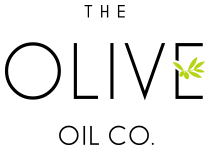Written by Michael Bradley at Veronica Foods Company
"WHERE" turns out to be the most overrated variable when it comes to olive oil. If you don't know WHEN, WHAT, and HOW, the oil was made knowing WHERE is a meaningless distinction. In fact, claiming special consideration because an oil was produced in a particular place can be downright misleading. Assuming the producer is starting with sound ripe fruit that isn't insect or disease infested, it is hard to make bad olive oil if the producer follows the well-known principles and practices that have been around for thousands of years. The cost differential to make high grade EVOO as opposed to generic extra virgin is less than 50%.
In other words, there is no objective economic or aesthetic justification, in my opinion, for the "most extravagant olive oil in the world to cost more than double that of a well made generic one." This is not to say that there are no differences between regions like Sicily and Tuscany. There certainly are; but if you were to take well made FRESH Nocellara de Belice from Sicily, and Frantoio, Coratina, or Leccino, from Tuscany or elsewhere in the world, and have a thousand olive oil experts from all over the world judge, you will not find anything like universal agreement. I taste routinely over one thousand olive oils a year and I happen to prefer the Nocellara when it is fresh and well made to anything I have ever tasted from Tuscany. There are doubtless plenty of Tuscans who will take issue with my preference; but in matters of taste there is no objective standard. It is important and necessary to know what defective olive oil tastes like. The single greatest source of defective olive oil is due to spoilage; oil that has "TURNED" or become rancid and defective after it was produced.
By far the most important consideration and the least appreciated is freshness. A world class oil that is past its peak of freshness is far less desirable than a mediocre extra virgin that is fresh. Some varieties hold up longer and better than others. Durability has far more to do with variety, and chemistry than place. How can you tell? You can't. The industry has made certain that you remain in the dark. Rarely do olive oil labels reveal the variety, the bottling date and the date of crushing. Many large and small olive oil companies mix the previous years crop with the new crop in an attempt to create a consistent profile and to regulate the supply that is often erratic at best. The only way to create a uniform profile is to blend down. In other words, you cannot have peaks without valleys. That's why we refer to low grade olive oil as "flat".
Olive oil is made from fresh olives and it deteriorates rapidly. Legally, there can be no preservatives added. Imagine taking fruit juice and storing it in unrefrigerated containers for months, not to mention years. Imagine the same stale oil sitting in a cupboard opened in clear plastic for months more. This is the olive oil reality that most Americans live. Producers who claim that their oil has a shelf life of more than 12 months are not being honest. The bottlers definition of "shelf life" is not what most people imagine. Producers may be telling the truth based on the very mediocre industry standards but everyone in the industry knows only too well that the oil heads downhill from the day it is born. Some varieties head downhill at a much faster rate than others. No producer who is honest will claim with a straight face that their oil gets better with age.
What Macaroni Grill serves up as extra virgin olive oil is a bad joke, but in truth, it's no worse than what most supermarkets sell. This says more about industry "standards" than it does about any particular business. What passes as extra virgin olive oil in the US is a direct reflection of the international olive oil trade associations efforts. Adopting those same standards in the US does a terrible injustice to all serious ethical producers of the real thing.
GET FRESH!!!
